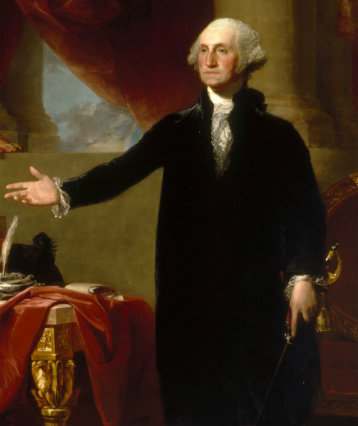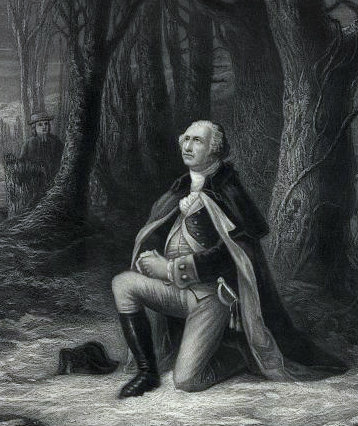Summary
In colonial times, Thanksgiving was a harvest festival, in which the colonists offered thanks to God Almighty for a good harvest, sometimes by feasting, sometimes by fasting. Such a holiday was celebrated already in the Spanish colony of Florida in the sixteenth century, and in the British colonies of Virginia and Massachusetts in the seventeenth century, most famously in 1621, when the Pilgrims at Plymouth Plantation celebrated their first successful harvest in the company of some of the Native American tribesmen. Thanksgiving became a regularly celebrated national holiday only during the Civil War, when Abraham Lincoln proclaimed a day of national Thanksgiving in 1863, and each president since has annually issued Thanksgiving Day proclamations. The date for the holiday was set as the fourth Thursday in November by an act of Congress only in 1941.
But the first day of national Thanksgiving was proclaimed by George Washington in the first year of the new American republic, whose appearance on the world stage—after the perilous Revolutionary War, the failure of the Articles of Confederation, and the contentious Constitutional Convention—seemed little short of miraculous. Washington spoke not of harvests but (mainly) of matters political.
Section Overview
The structure of his proclamation is straightforward. After the formal introductory opening—“By the President of the United States of America. A Proclamation.”—the three paragraphs deal in turn with the reasons President Washington is issuing the proclamation, the things for which he recommends we give thanks to God, and the things for which we should humbly offer God our prayers and supplications.
WATCH: Christopher DeMuth reads the Thanksgiving Proclamation.
A. The Reasons for the Proclamation
- What are the two reasons Washington gives for issuing the proclamation?
- How are they related to each other? Which do you think is more important?
- Why does Washington emphasize that he is only doing his duty and acceding to Congress’s request?
- Why does Congress ask him merely to “recommend” a day of public thanks-giving and prayer?
- To whom is the proclamation addressed? What does it recommend that they do?
WATCH: What are the two reasons Washington gives for issuing the proclamation?
B. The Things for Which Thanks Should Be Given
- Make a list of the several items in the proclamation (second paragraph) for which thanks should be given. Do you see any order in the list?
- Which items do you think are most important? To Washington? To us today?
- To whom are thanks to be given? What view of the divine is operative here?
- Are the “great and various favors which He hath been pleased to bestow on us” personal and private or communal and public? What is the relation between the private and public blessings?
- What do you think of Washington’s language? Can you find in it echoes of the Bible or of the Constitution? (Compare, for instance, the language of the final paragraph to St. Paul’s First Epistle to Timothy, Chapter 2, or to Article I, Section 8 of the Constitution)
WATCH: For what blessings does Washington recommend we give thanks?
C. The Things for Which We Should Pray
- Make a list of the several items for which prayer should be made (third paragraph). Do you see any order in the list?
- Which items do you think are most important? To Washington? To us today?
- Why does Washington begin with the prayer “to pardon our national and other transgressions”? Which national transgressions might he have in mind?
- What do you make of the double prayer “to promote the knowledge and practice of true religion and virtue and the encrease of science among them and Us” (emphasis added)? How does Washington see the relation between religion and science?
- What do you make of the qualification in the final prayer for temporal prosperity: that it be (only) of “such a degree . . . as he alone knows to be best”? Were you to pray for prosperity today, would you include such a qualifying clause?
WATCH: For what things does Washington recommend we pray?
D. Washington’s Purposes
- What does Washington hope the Proclamation will accomplish?
- In both the paragraph about thanksgiving and the paragraph about prayers, Washington speaks about the people uniting: “That we may then all unite in rendering him our sincere and humble thanks”; “that we may then unite in humbly offering our prayers and supplications.” What kind of unity is he proposing for his fellow citizens? Why does Washington think it important?
The video seminar helps capture the experience of high-level discourse as particpants interact and elicit meaning from classic American texts. To watch the full conversation, click here. Otherwise click below to continue.



 (3 votes, average: 3.33 out of 5)
(3 votes, average: 3.33 out of 5)



Post a Comment